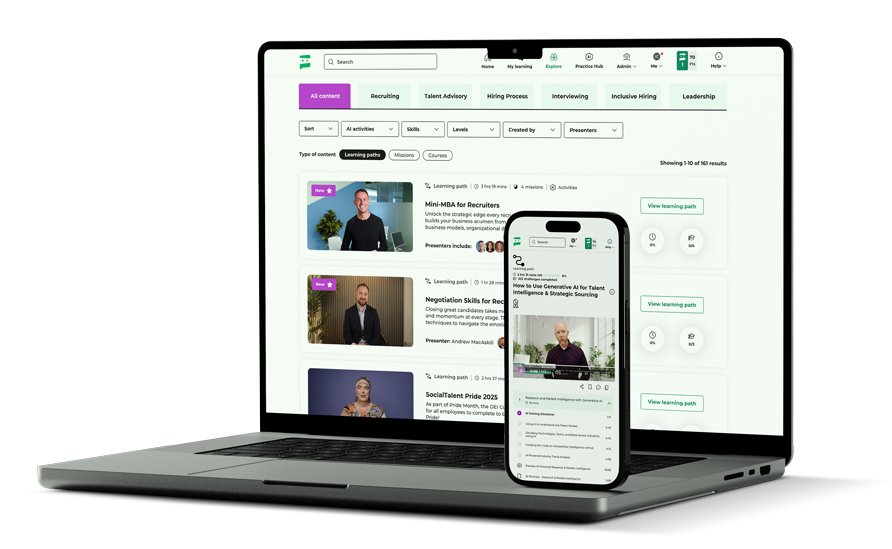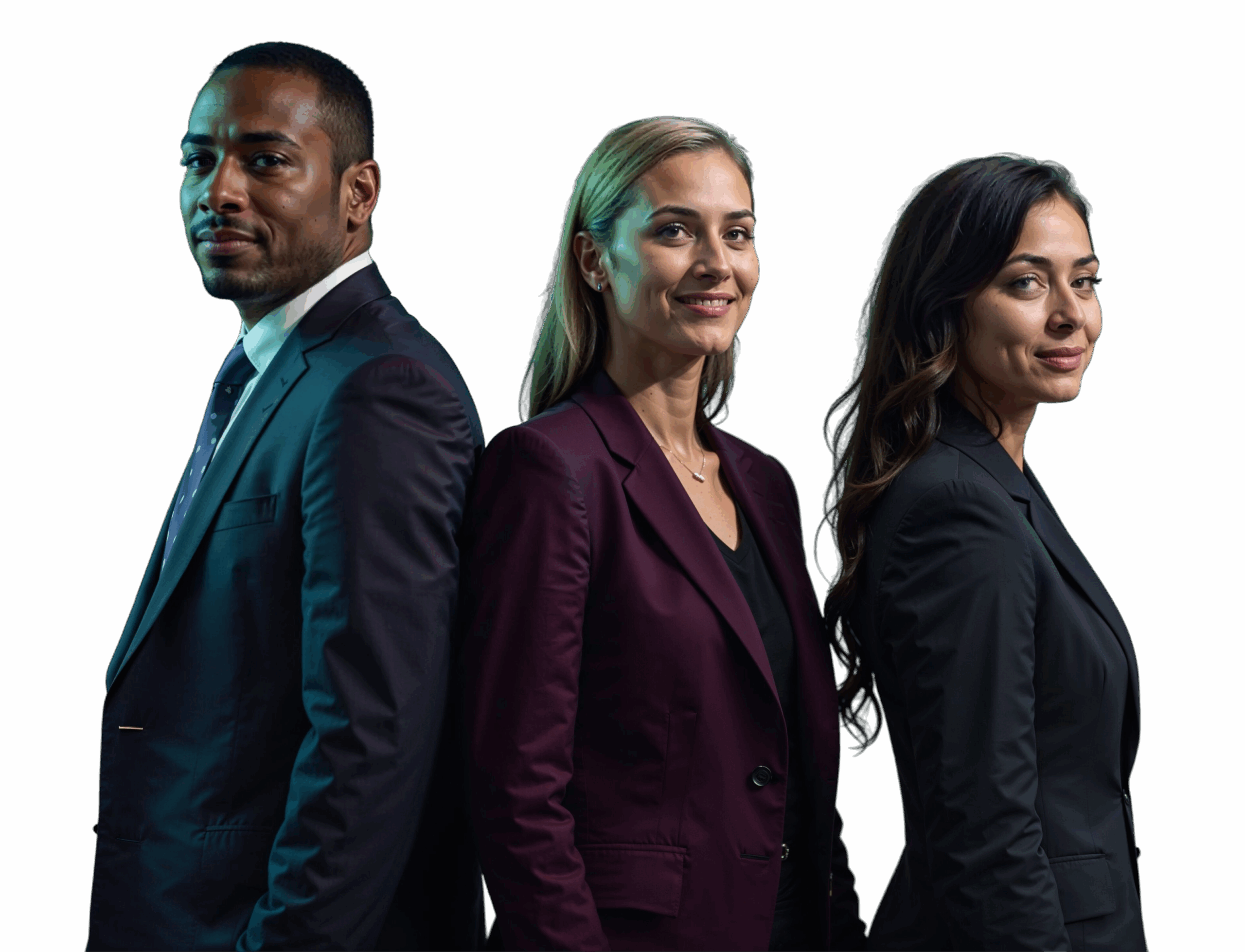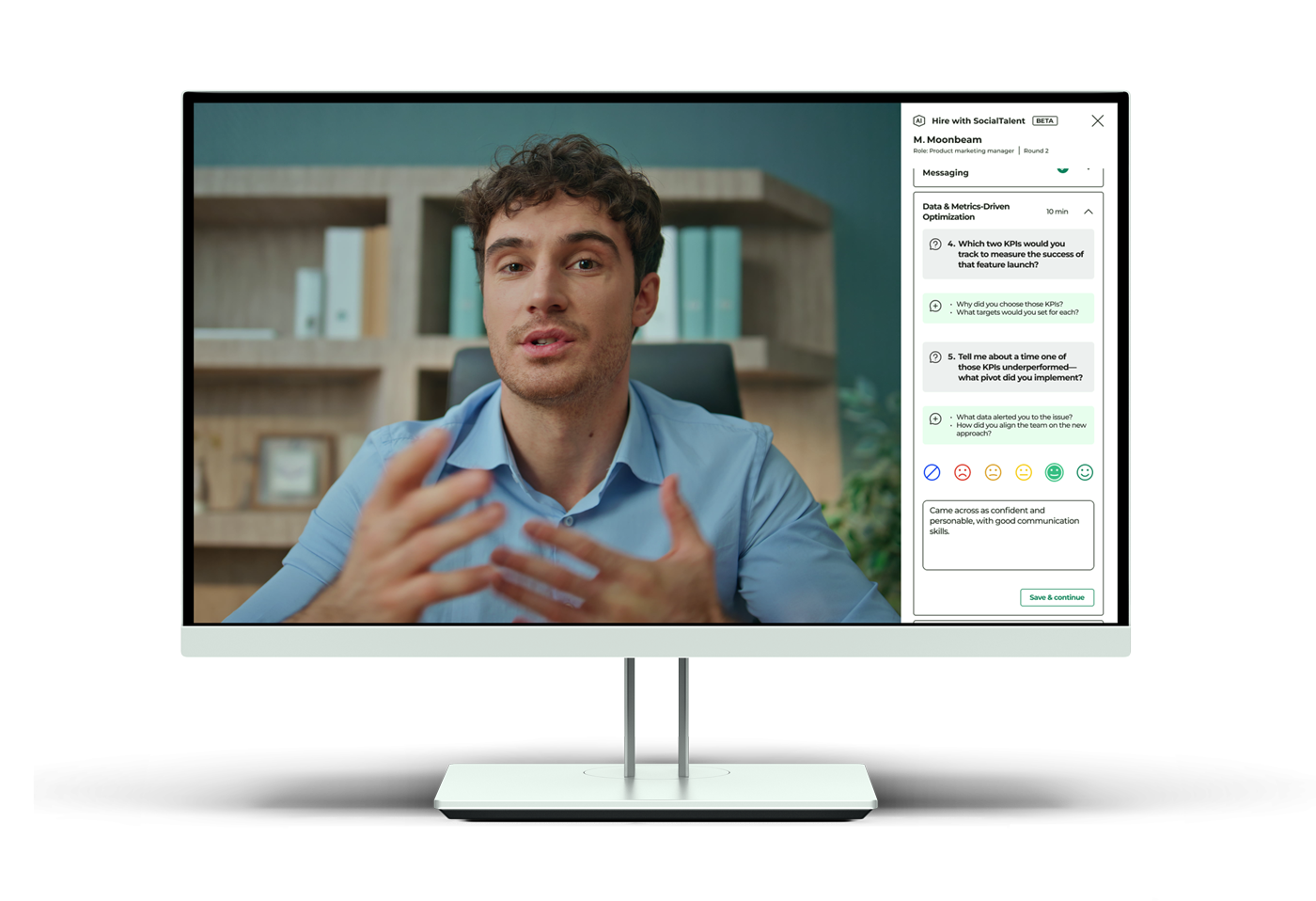
By Johnny Campbell
✨ AI Summary:
- Define a clear and specific hiring problem that AI must solve before adopting any technology.
- Invest in structured hiring processes like competency models and consistent scoring to maximize AI’s impact.
- Ensure your hiring data is trustworthy, with consistent interview feedback and process visibility, to let AI amplify insights.
- Foster a culture open to change where AI enhances human judgment without replacing hiring decisions.
How to prepare your organisation for AI that actually improves hiring, not complicates it
Every TA leader feels the pressure:
“We need AI. The board wants AI. Our competitors are using AI.”
But here’s the truth no vendor will tell you: most AI projects fail, not because the technology is bad, but because teams weren’t ready.
Real readiness has nothing to do with hype. It’s about clarity, consistency, data, and culture.
When those pieces are in place, AI doesn’t replace your people. It makes every interviewer as good as your best one. It turns training into action. It gives you visibility where you’ve never had it. And it helps you hire fairly, faster, and with fewer costly mistakes.
If you’re seeing these five signs, your TA function is ready for AI that actually works.
1. You Have a Clear (and Intentional) Use Case for AI
The strongest sign of readiness is simple: you know exactly what problem AI needs to solve.
Maybe your interviewers are inconsistent. Maybe your recruiters are buried in repetitive tasks. Maybe your process is slowing down your candidates and your hiring managers.
AI delivers the biggest ROI when it’s applied to a specific and painful bottleneck, such as manual screening, inconsistent interviewer performance, slow or biased decision making, process delays, or low recruiter bandwidth.
Here is how Aubrey Blanche describes the first principle of responsible AI in hiring:
“The first principle of AI in TA is intentionality. Don’t adopt AI because it’s trendy or because executives want something impressive to report to the board. Start with the specific challenge you’re trying to solve. MIT research shows that AI for the sake of AI fails about 95 percent of the time.”
AI isn’t magic, and it isn’t a catch all solution. It’s powerful only when it solves the right problem on purpose.
If you can articulate that purpose clearly, your organisation is ready for the next step.
2. You Are Investing in a More Structured Hiring Process
Most companies have one interviewer who never misses and a long line of interviewers who are guessing. Structure is how you close that gap.
If you have started investing in competency models, interview guides, consistent scoring, defined question sets, or a unified hiring bar, then you are already building the foundation AI needs.
AI works best when it supports a structured and fair process. It helps every interviewer follow the same standard, gives candidates a consistent experience, and helps leaders feel confident that decisions are based on evidence, not instinct.
If structure is becoming a priority, you’re ready for AI that reinforces and scales it.
3. Your Data Isn’t Perfect, But It’s Trustworthy
You don’t need perfect ATS hygiene. If that were the requirement, no one would ever adopt AI.
You need reliable data that tells an honest story.
If your system includes consistent stage movement, basic interview feedback, time to fill metrics, quality of hire indicators, tagging that isn’t chaos, and visibility into what’s actually happening in interviews, then you have more than enough to begin.
With this foundation, AI helps you see what you couldn’t see before, including which interviewers need coaching, where decisions get stuck, which questions correlate with better outcomes, where bias may emerge, and why candidates drop out.
When the data gives you a baseline of truth, AI amplifies it instead of distorting it.
4. Your Organisation Is Open to Change, Even Carefully
AI adoption is not a technical project. It’s a behavioural shift.
If your recruiters are asking for tools that remove admin work, if hiring managers admit they need more confidence in interviewing, if leaders are curious about how AI can reduce risk or improve fairness, or if your culture is open to piloting new workflows, you have the cultural foundation required for AI success.
The teams that adopt AI successfully are not the loudest about innovation. They are the ones who want to hire better, fairer, and faster, and are open to trying new tools that support that goal.
That openness is the beginning of real change.
5. You Believe Humans Should Make Hiring Decisions, and AI Should Make Them Better
This is the strongest signal your TA team is ready for AI.
You recognise that AI should enhance human capability, not replace it.
SocialTalent’s philosophy is simple.
AI should support structured, fair, high-quality interviews by giving people the right guidance, insights, and preparation – not by automating away the conversation.
We don’t use AI to make decisions for you or to replace human judgment.
We use AI to elevate interviewer performance, improve consistency, reduce bias, and give every candidate a better, more predictable experience.
If your organisation values human connection, real conversations, and evidence-based decisions – and wants AI to strengthen that – then you’re ready.
Conclusion: Readiness Isn’t Perfection, It’s Direction
Most AI failures come from poor readiness, not poor technology.
But when you have a clear use case, a structured process, trustworthy data, openness to change, and a belief in human led hiring, AI stops feeling risky. It becomes a competitive advantage.
And it transforms every interviewer into the interviewer who never misses.



